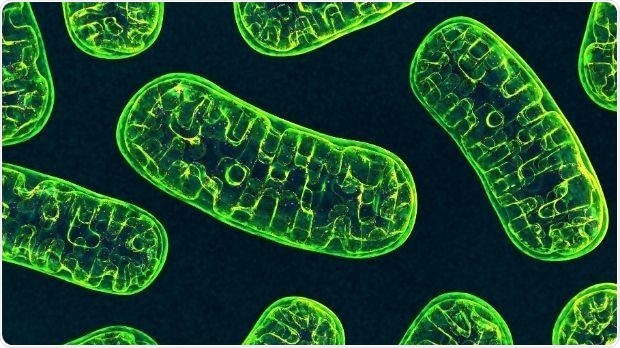According to a study recently published in the Nature Metabolism journal, DNA defects in the energy “factories” of a cell increase the chance of survival in patients suffering from bowel cancer, also called colorectal cancer.

Image Credit: Cancer Research UK.
Investigating how DNA mutations, or errors, can fuel the development of cancer and also allow it to adapt and advance has been a major focus of cancer studies. However, most of that focus was directed toward the DNA present in the nucleus of the cell.
According to experts, the mutations found in DNA beyond the nucleus, that is, in structures known as mitochondria, have been “overlooked for decades,” but this could have a major impact on patient survival.
The investigators believe that in the days to come, this data could be used by doctors to identify patients who are suffering from more aggressive forms of bowel cancer so that the most effective treatments can be given to them.
This work highlights just how much more there is to discover about the inner workings of cancer, and all those breakthroughs for people with cancer we have yet to unlock.”
Michelle Mitchell, Chief Executive, Cancer Research UK
Overlooked DNA
While the majority of the human DNA is enclosed at the core of the cells in the nucleus, people also carry a few of these DNAs in their mitochondria, which are tiny structures found in human cells and help convert carbon fuels, like sugar, into energy. A DNA like this is also prone to mutations (errors).
Although scientists have previously detected mitochondrial DNA mutations in cancer cells, not much research has been done on what these mutations do and whether they have any potential impact on treatment response, or how cancer develops.
According to Dr. Payam Gammage, the co-lead author of the study and group leader at the Cancer Research UK Beatson Institute, the new study sheds more light on the effect of mitochondrial DNA mutations in cancer, which have been ignored for many years.
Transatlantic collaboration
To address these concerns, scientists from the Cancer Research UK Beatson Institute in Glasgow teamed up with the Memorial Sloan Kettering Cancer Center in New York to collect and assess the information from the biggest published dataset of tumor specimens that contain mitochondrial genome data and the related clinical outcomes in the patients.
The researchers examined the data obtained from 344 patients with bowel cancer and were able to match the mutation groups to the chance of survival. They observed that, after controlling the other variables, such as age, that impact the risk of cancer, the existence of mitochondrial mutations was linked to 57% to 93% reduced risk of death from bowel cancer, based on the type of mitochondrial DNA error.
This discovery could have a huge impact on patient care, with potential for changes to suggested treatments and a patient’s outlook based upon the mitochondrial DNA status of their cancer. However, further research will be necessary to move these discoveries from the lab to the clinic.”
Dr Payam Gammage, Study Co-Lead and Group Leader, Beatson Institute, Cancer Research UK
“Incredible things can be achieved through research, and the gains are even greater when we collaborate with world-class global institutes like Memorial Sloan Kettering Cancer Center,” Mitchell added.
Beyond bowel cancer
The researchers also wanted to find out how common mitochondrial mutations occur more widely in cancer. They eventually applied advanced genetic methods to inspect the existing data from more than 10,000 tumor specimens across 23 types of cancer to look for frequently repeated mitochondrial mutations.
The team observed that almost 6 in 10 tumor specimens contained mitochondrial mutations, while 25 out of the 30 most commonly mutated genes across different types of cancers were present in the mitochondrial genome.
Such results suggest that mitochondrial mutations are likely to play a crucial role in survival beyond bowel cancer. Additional studies are required to interpret the broader implications of mitochondrial mutations in different types of cancers, and to further investigate the biological basis behind it.
Using data hiding in plain sight, we have shown that a critical piece of the cell’s machinery to make energy is quite often broken in cancers. It now begs the question of how these mutations within mitochondrial DNA might be exploited as drug targets.”
Dr Ed Reznik, Study Co-Lead Author, Memorial Sloan Kettering Cancer Center
Source:
Journal reference:
Gorelick, A. N., et al. (2021) Respiratory complex and tissue lineage drive recurrent mutations in tumour mtDNA. Nature Metabolism. doi.org/10.1038/s42255-021-00378-8.